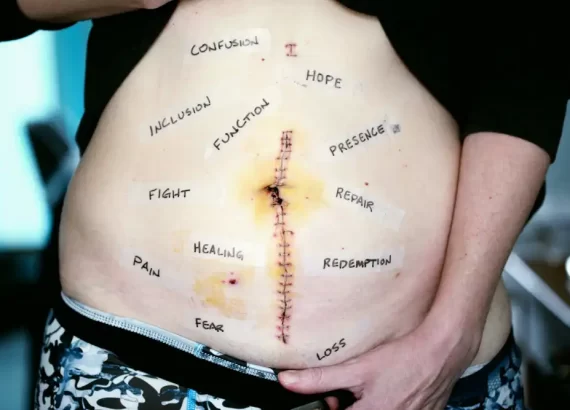Part 2: How to Care For Someone Experiencing Postpartum Depression

Welcome back! In Part 1 of our series on postpartum depression we took a look at what causes postpartum depression and how you can prevent it. In Part 2, we’ll dig into what you can do to care for a loved one suffering from postpartum depression. Having a baby is hard enough, made far more difficult when you add in the challenge of handling postpartum depression. Situations like these are scary and overwhelming, and you may be uncertain where to start or how to help.
With that in mind, here are some ways you can help take the pressure off your loved one so they can focus on recovery.
Be Kind & Empathetic
As a new mother, your loved one is under a lot of pressure already. On your way to help, your first step is to leave any judgments, opinions, and critical comments at the door. You don’t need to pressure them to get better or remind them that their baby needs them: they already know. When you spend time with them, keep the conversation light, focus on positives, and let them lead the conversation.
If they open up to you about how they’re feeling, that’s great, but don’t pressure them. Your job is to be a safe, supportive friend. Offer them a safe space by listening without judgment. Refrain from giving any advice or solutions unless they ask for your input.
Be Proactive
Every mother knows how exhausting it is running a household. It isn’t just the chores themselves that are exhausting, but the cognitive load of having to schedule things and assign tasks. You can help your loved one out by being proactive: you can certainly ask them what you can do to help, but consider going a step further by offering to help with specific tasks or chores you could take care of:
Practical Help
People struggling with postpartum depression often have trouble getting the energy to keep up with things around the house. Picking up groceries or prepping meals is a good place to start. You can also help by picking up household goods that cut down on housework: paper plates, cups, and extra napkins, for example. When you’re visiting, offer to watch the baby or grab a dish towel and take care of any dirty dishes.
Offer Distraction
It’s always overwhelming bringing home a baby from the hospital. Being a mother takes up a tremendous amount of time and energy, and it’s easy to lose track of your own identity in the process. Bringing a book or buying them a subscription for a streaming service with a show you think they might enjoy may be nice ways to let them know you’re thinking about them and offer up a distraction that can help brighten their mood at the same time.

Communicate Without Expectation
In general, people struggling with postpartum depression may have a desire to isolate. That means it’s your job to maintain lines of communication without pressuring them or being upset if they aren’t holding up their end of the friendship. Memes and texts, little notes to let them know you’re thinking of them are all ways to help them stay connected and brighten their day. Don’t worry if you don’t get a response—they’ve got their hands full.
Help Make a Comfortable Nest
If you’re looking for ways to help your friend or loved one settle into motherhood, one good method is to help them with the nesting process. Bring them some flowers, pick up a decoration, or snag something soft and comfy they can snuggle up with in bed. If you bring flowers, take the time to trim and put them in water and a vase beforehand.
Get Professional Support
Helping care for someone with postpartum depression can be draining. If you’re struggling during this process or feel like you’re overwhelmed by what’s happening, consider gently encouraging them to seek professional support via a therapist.





